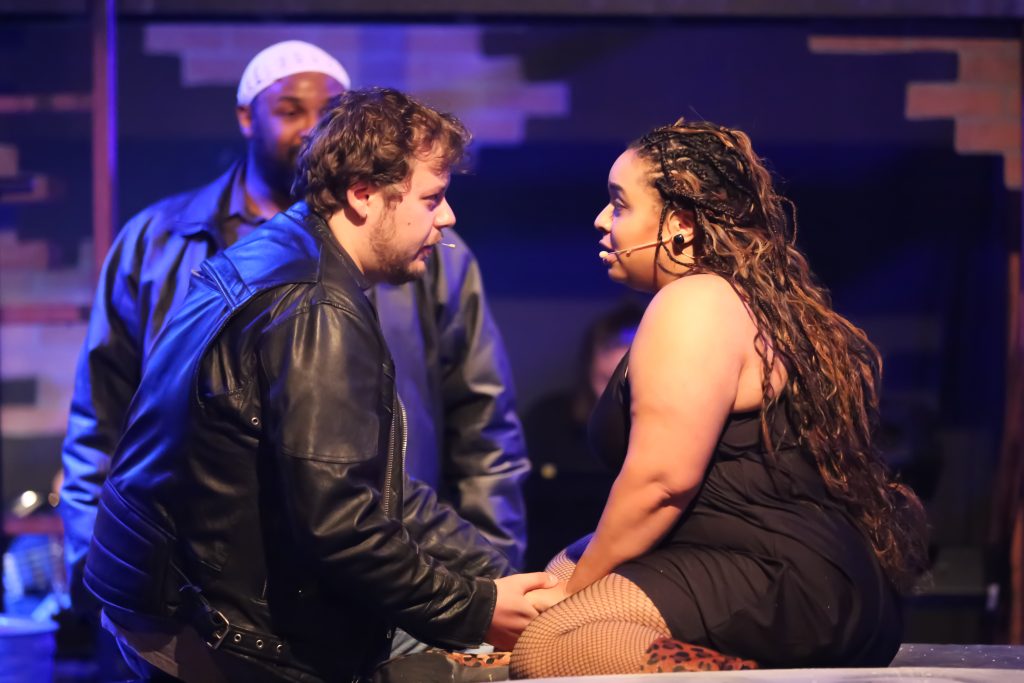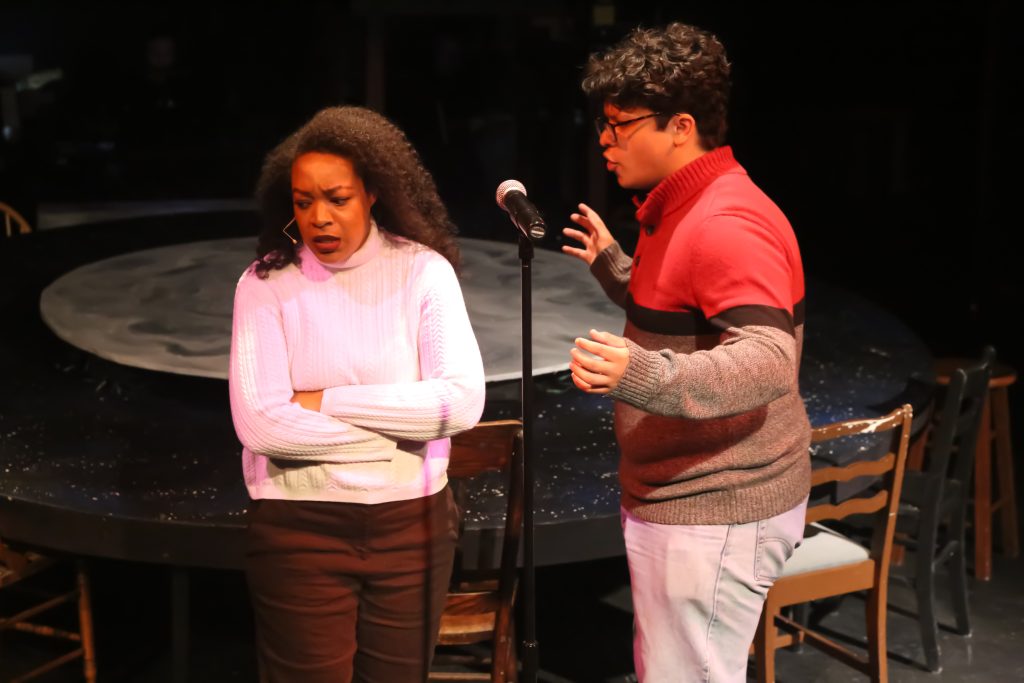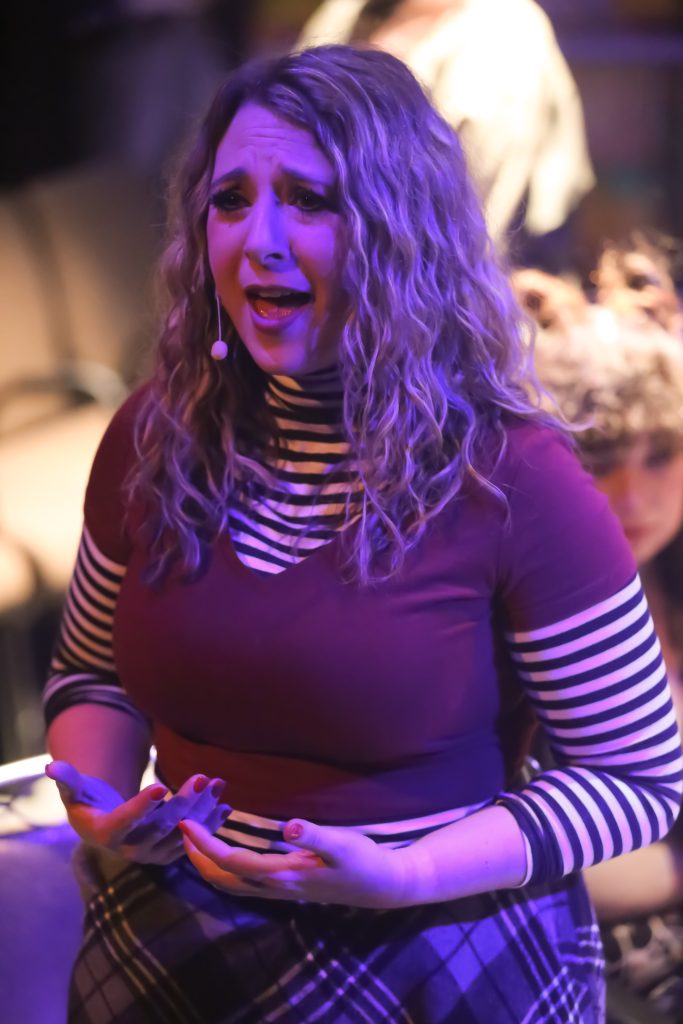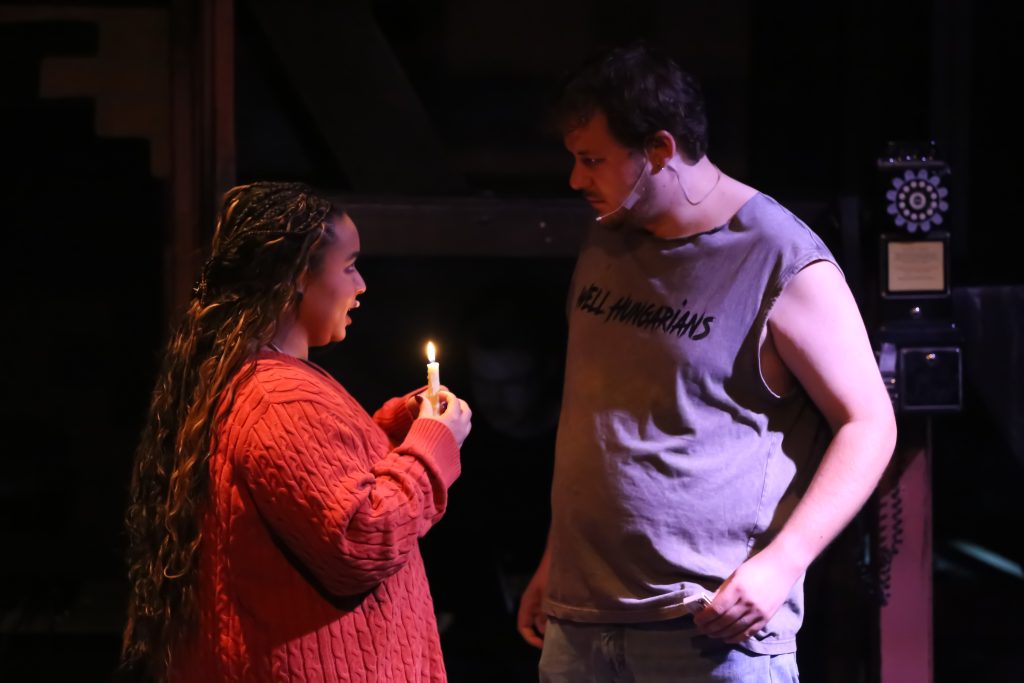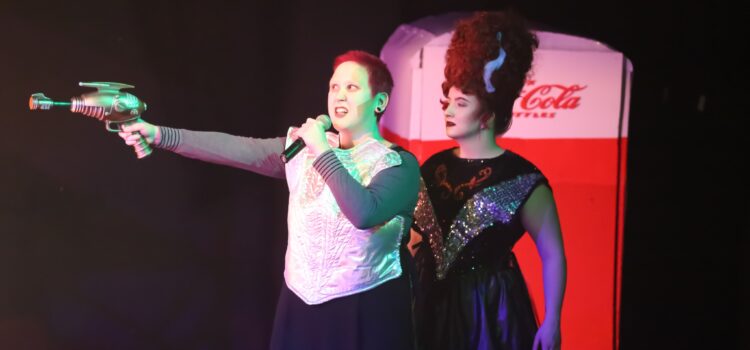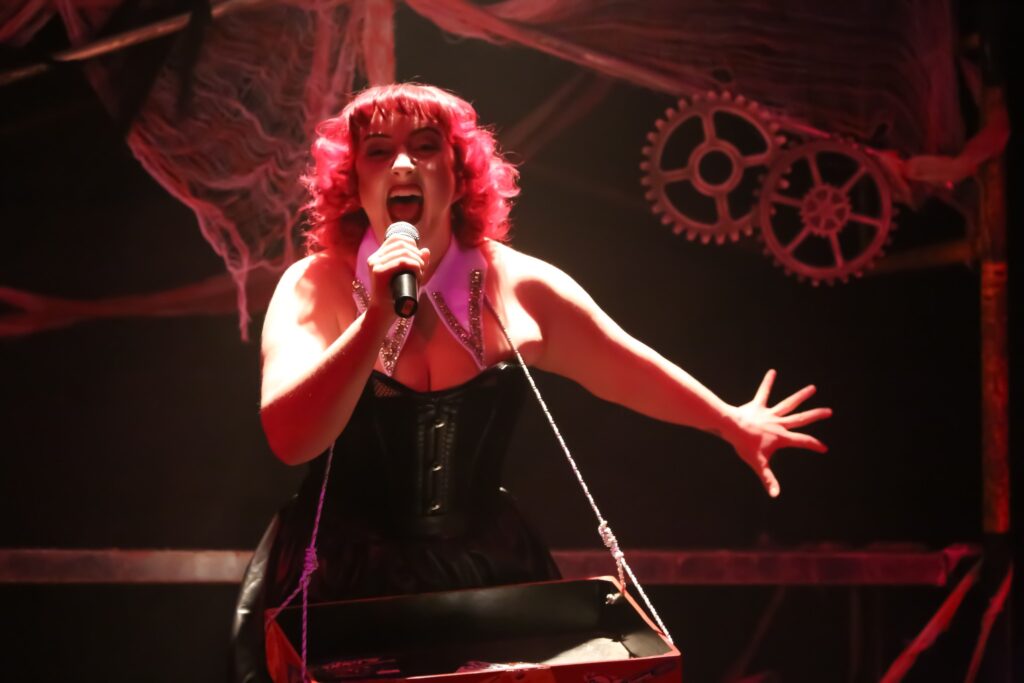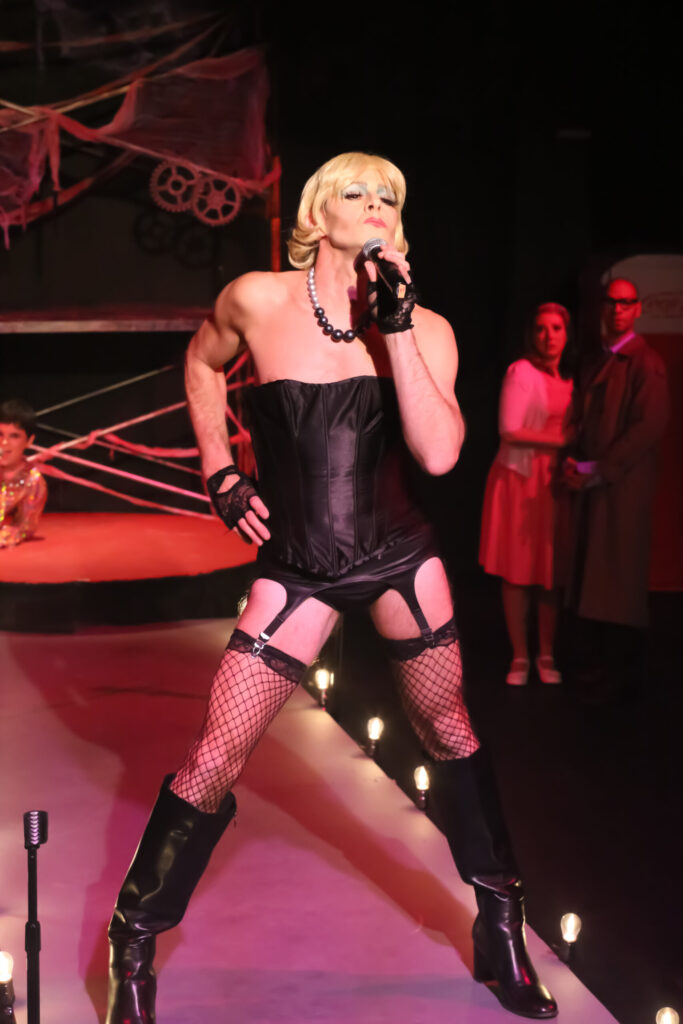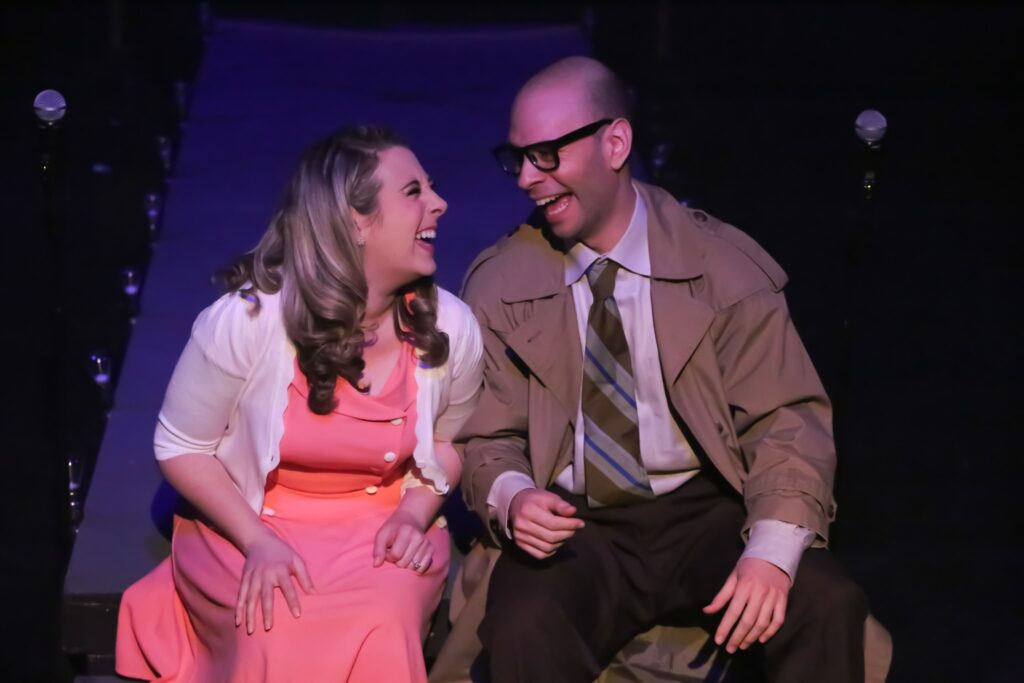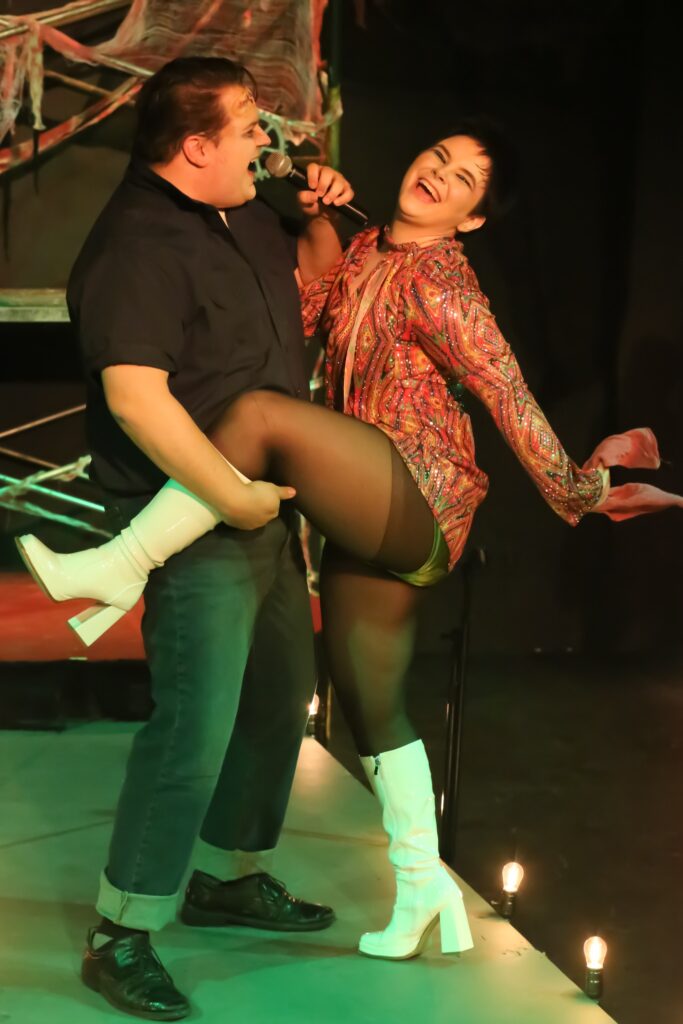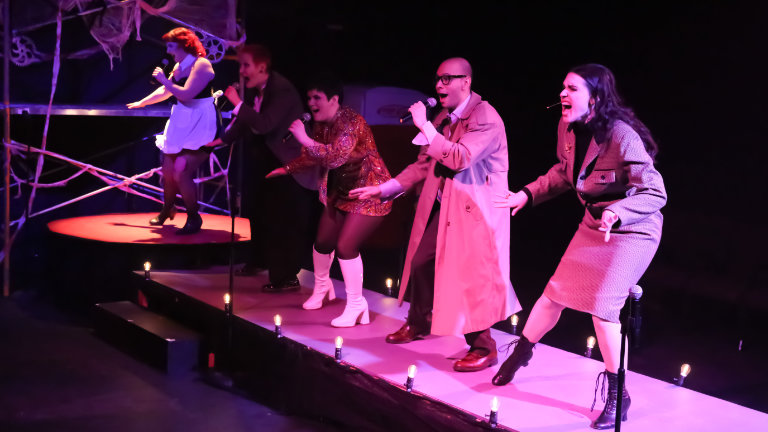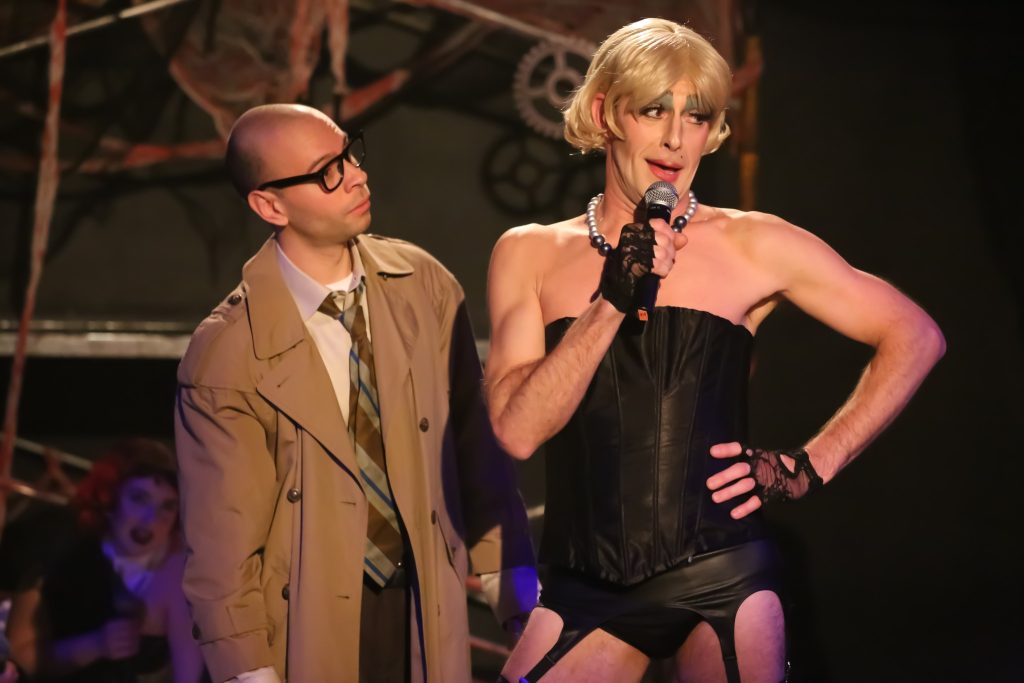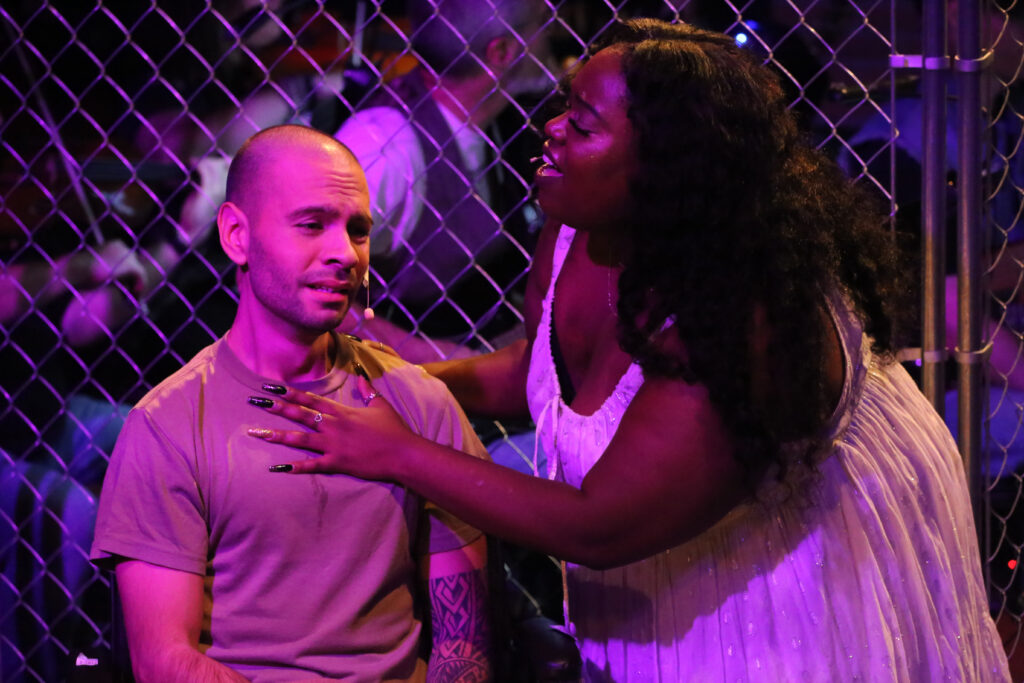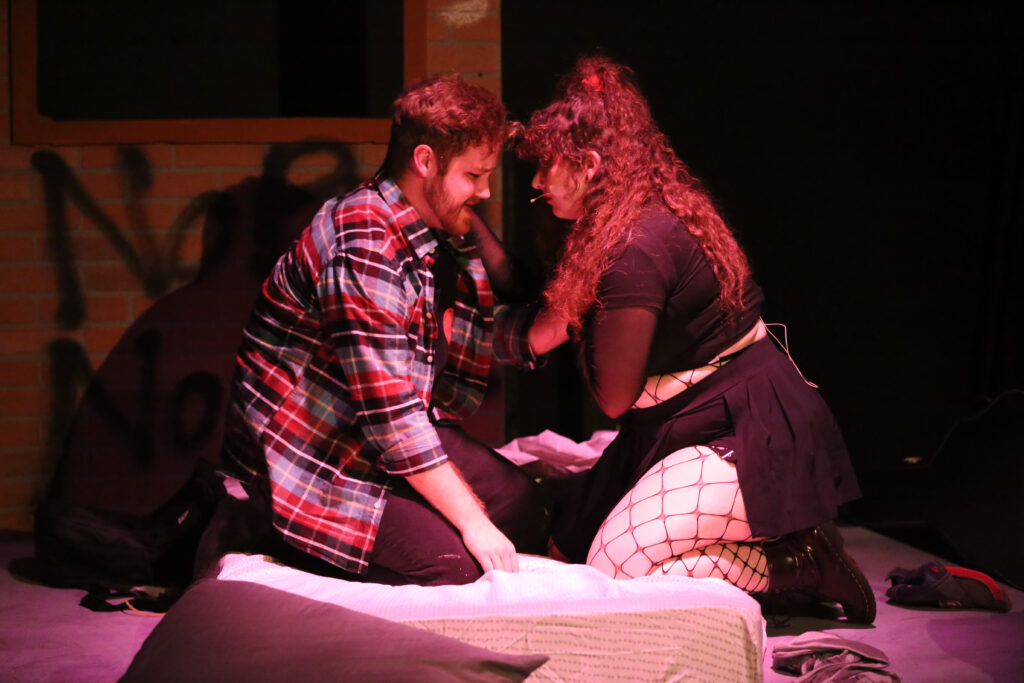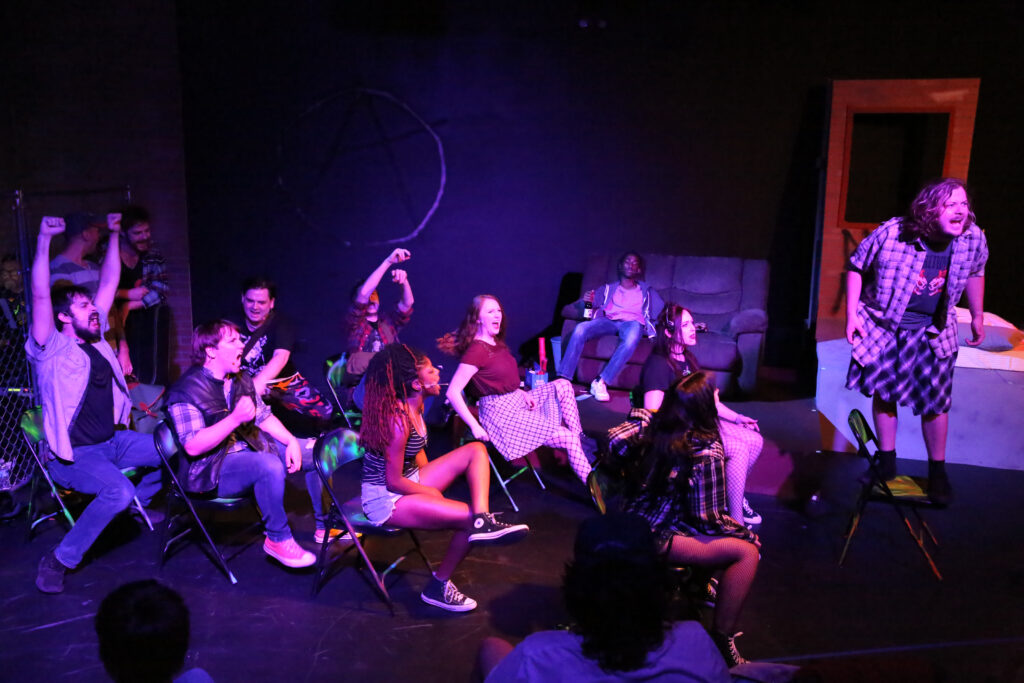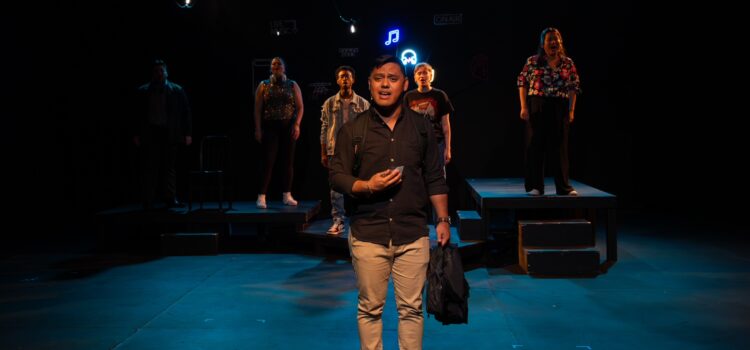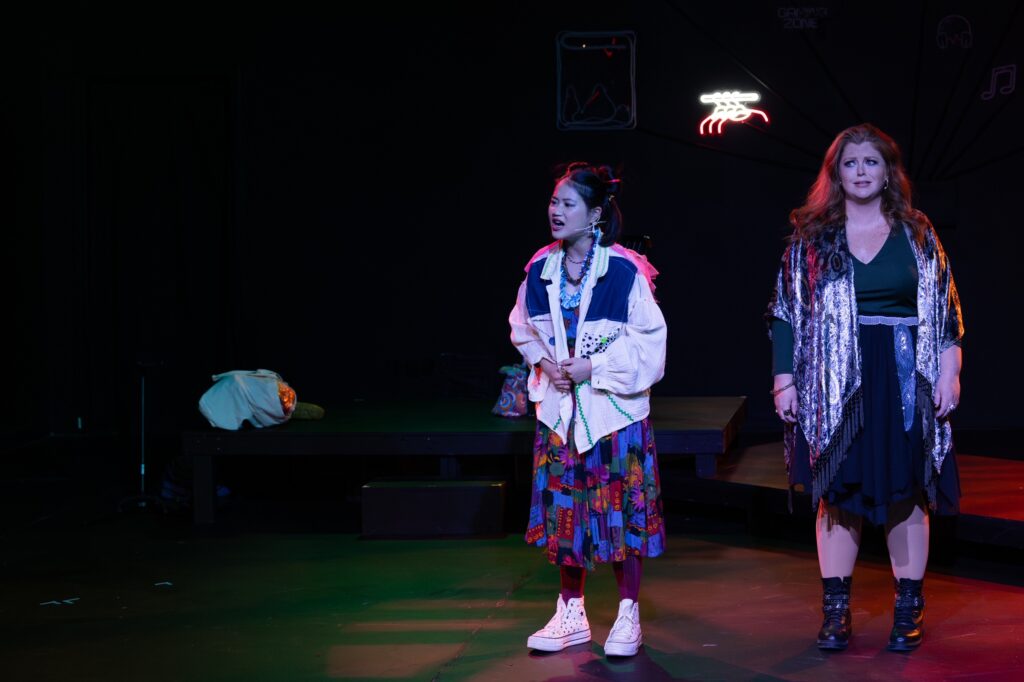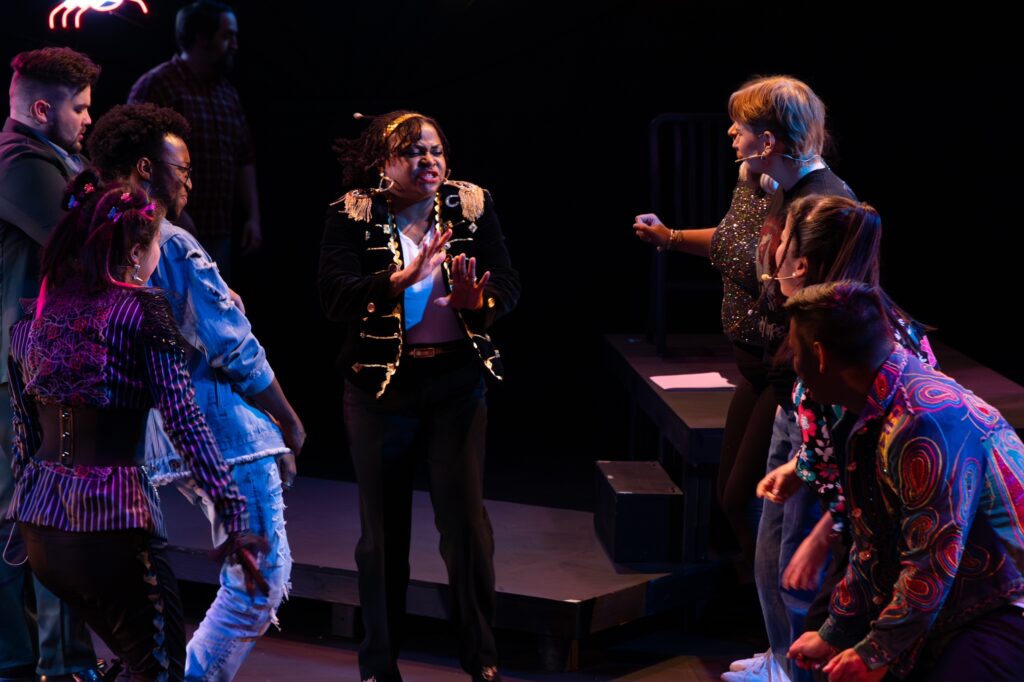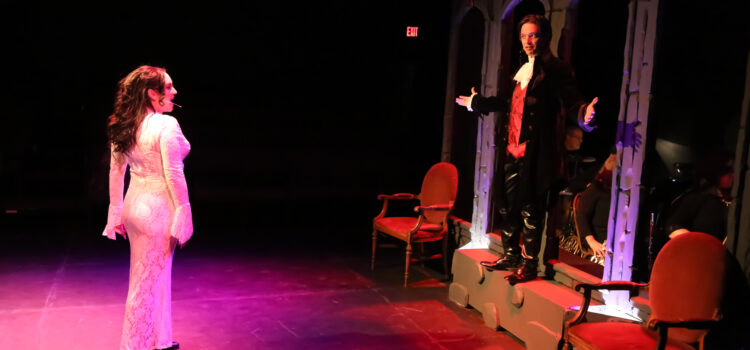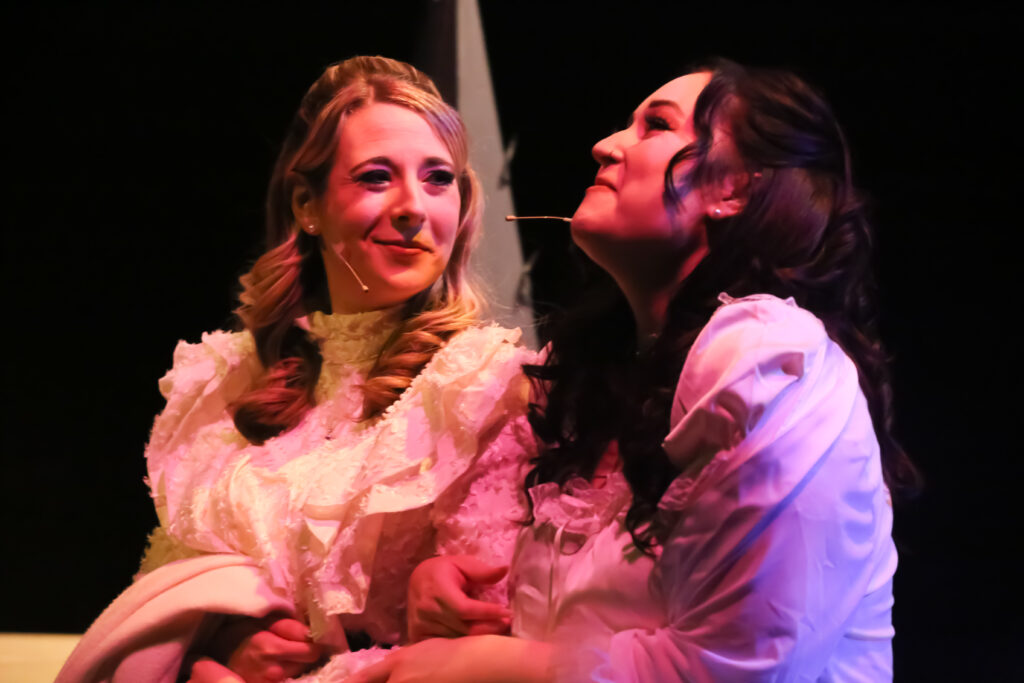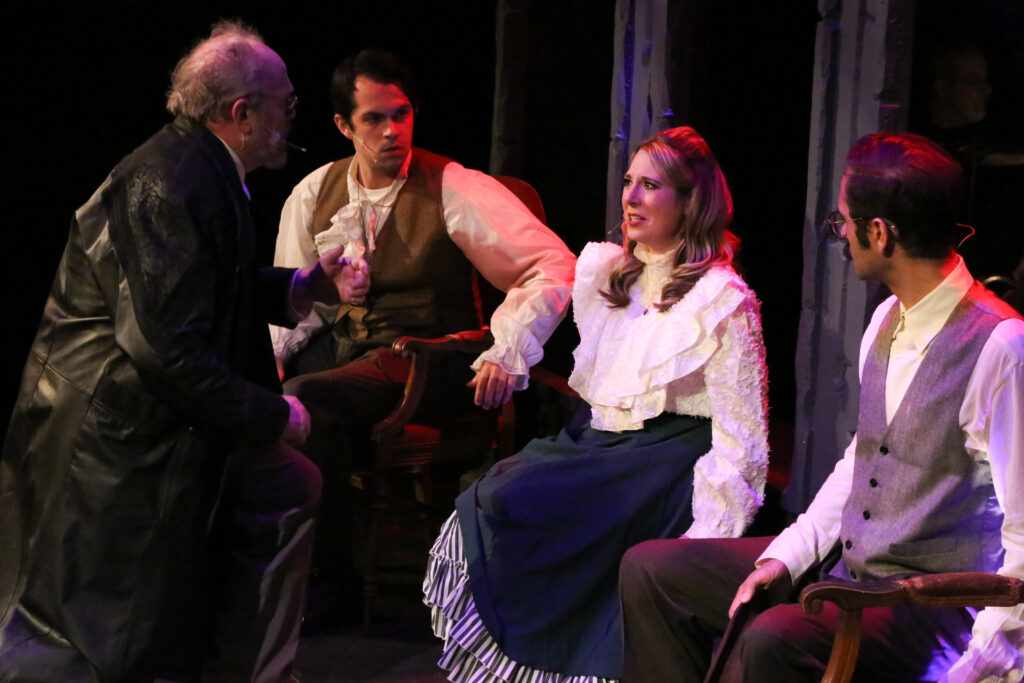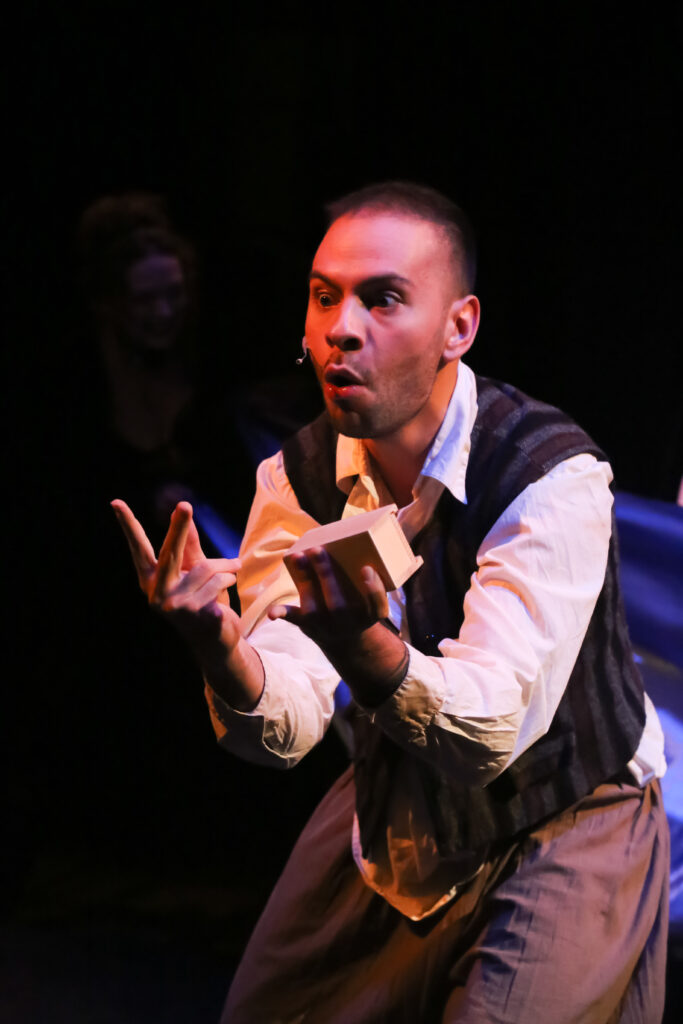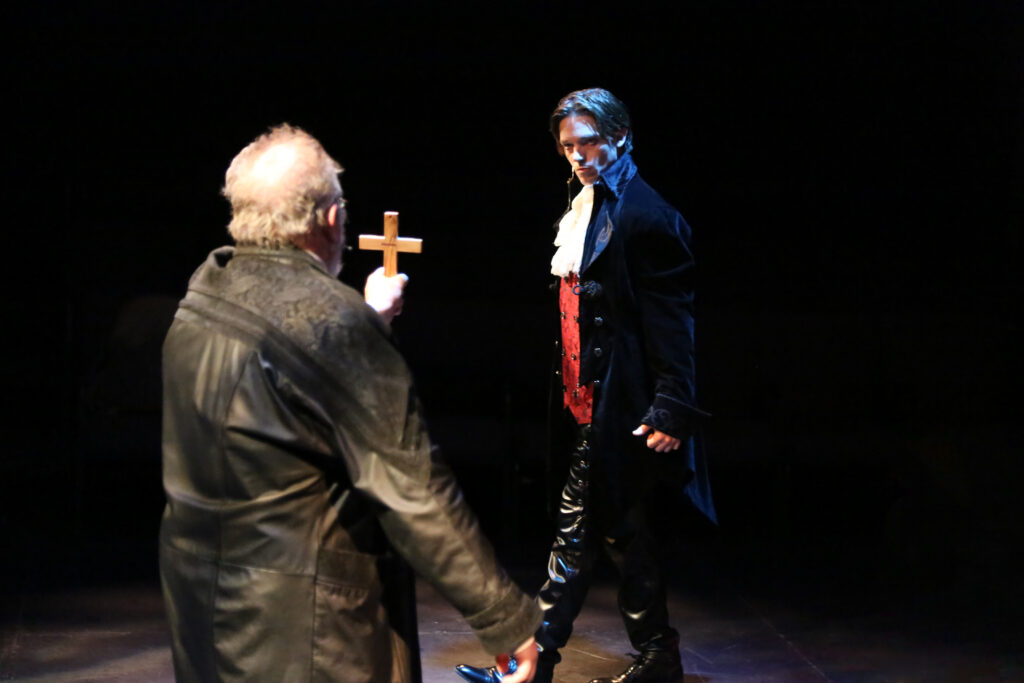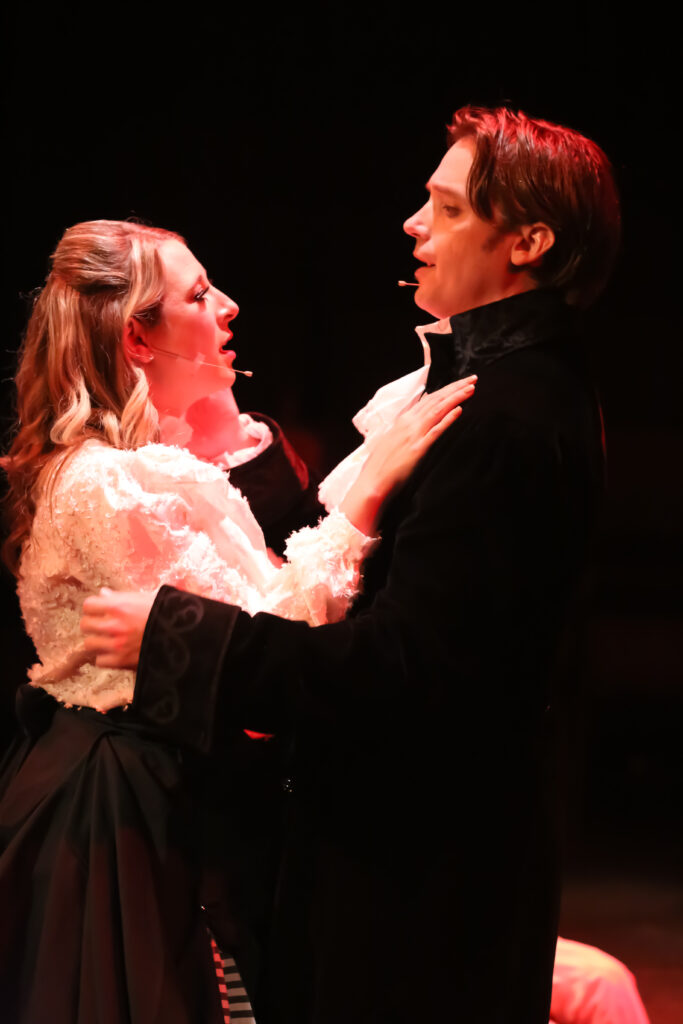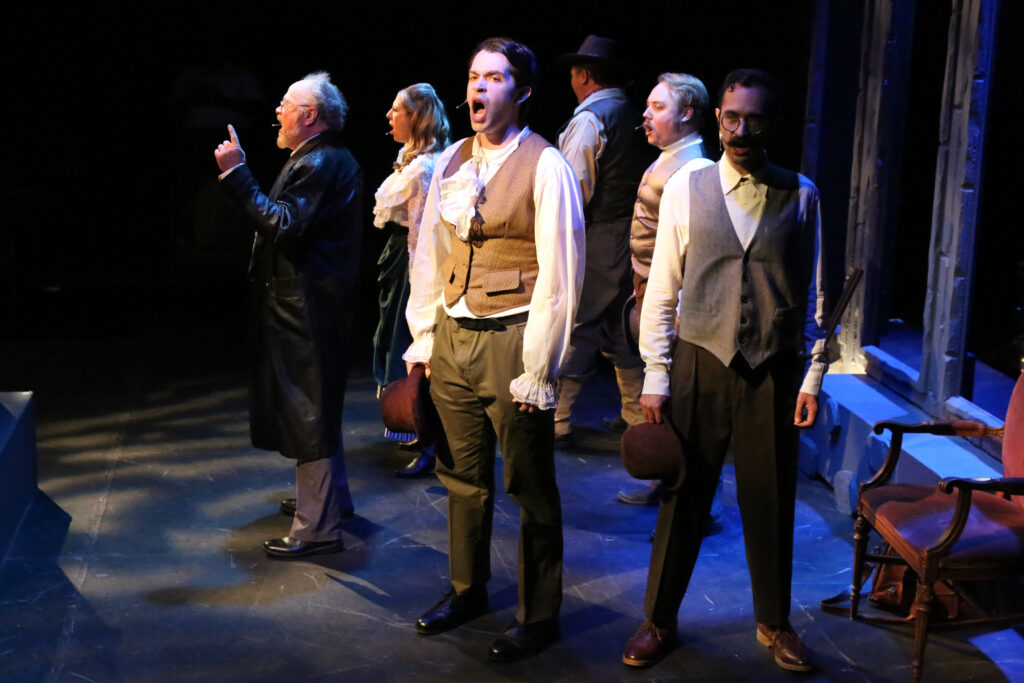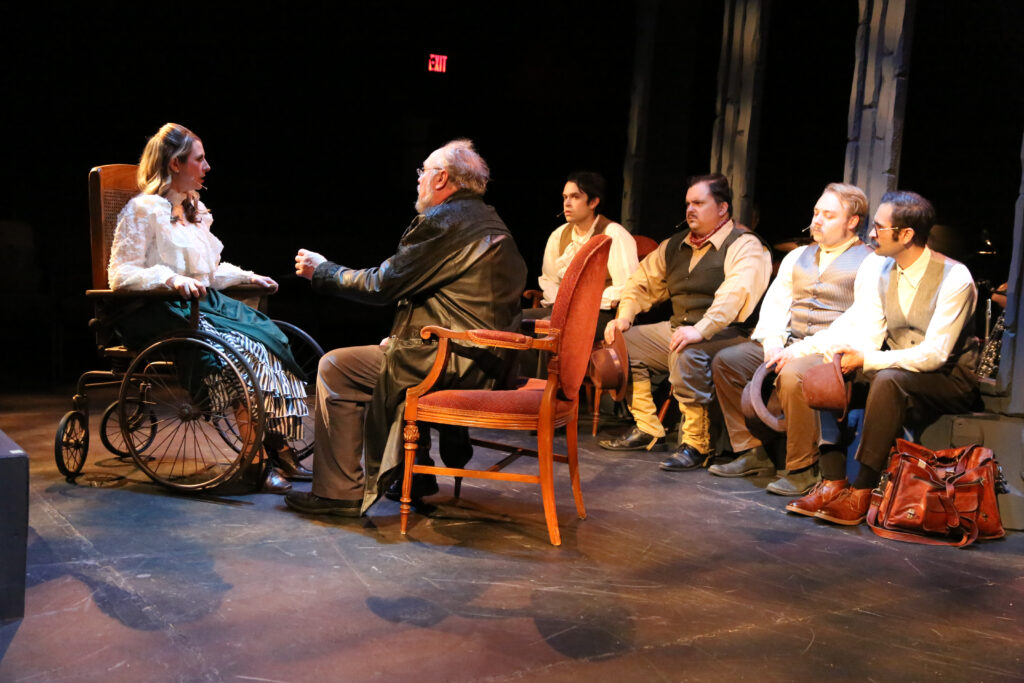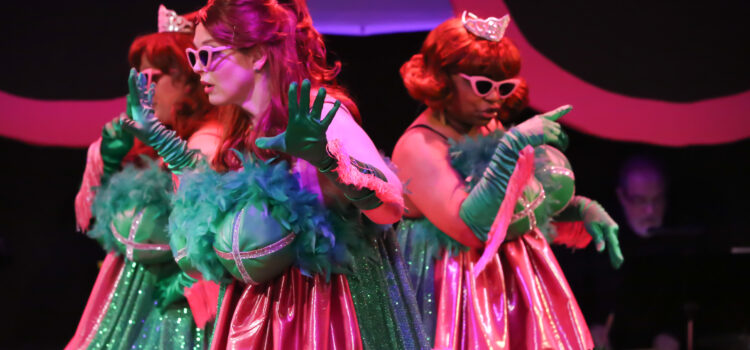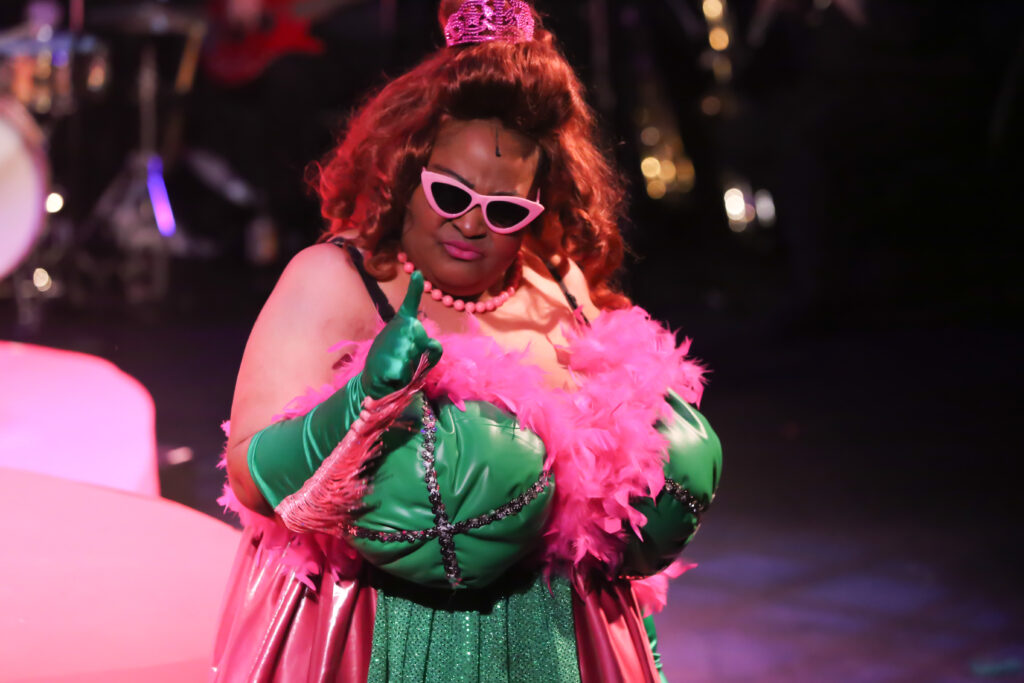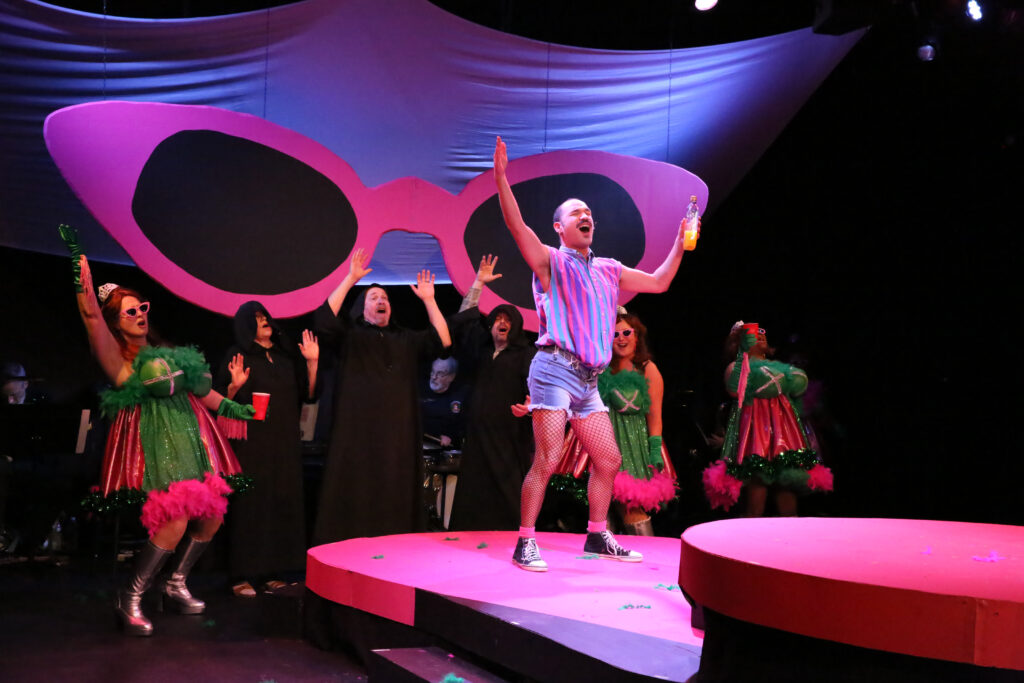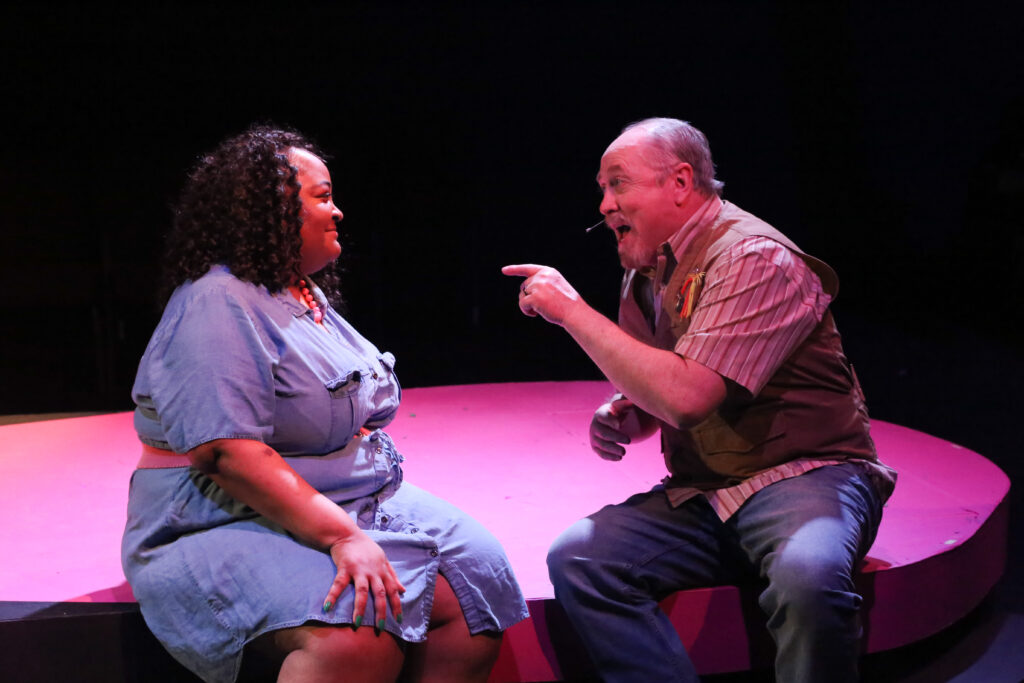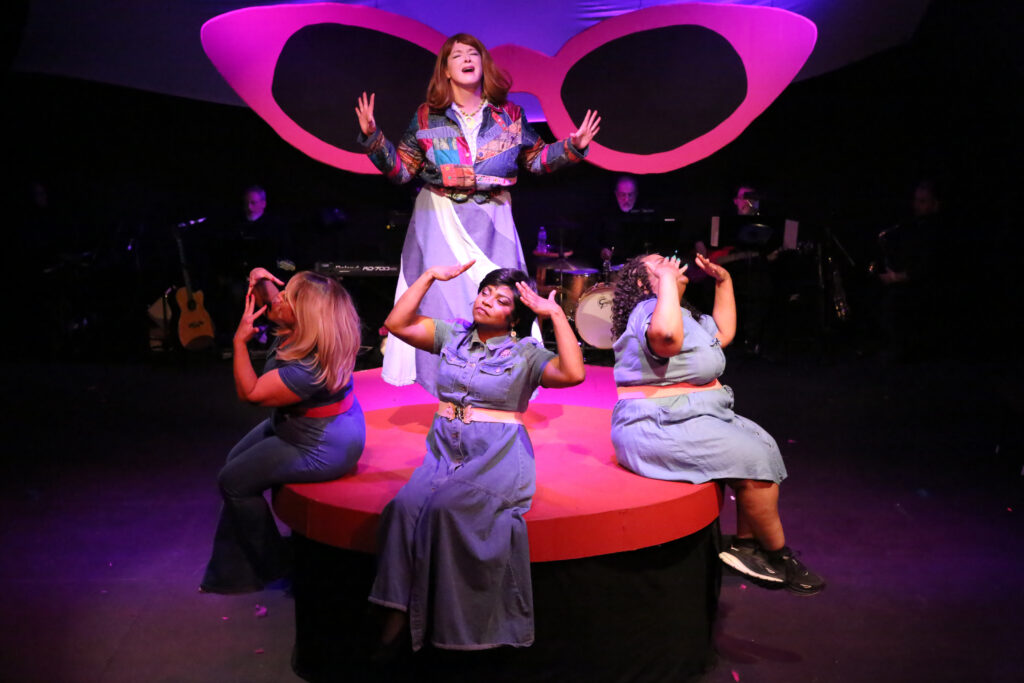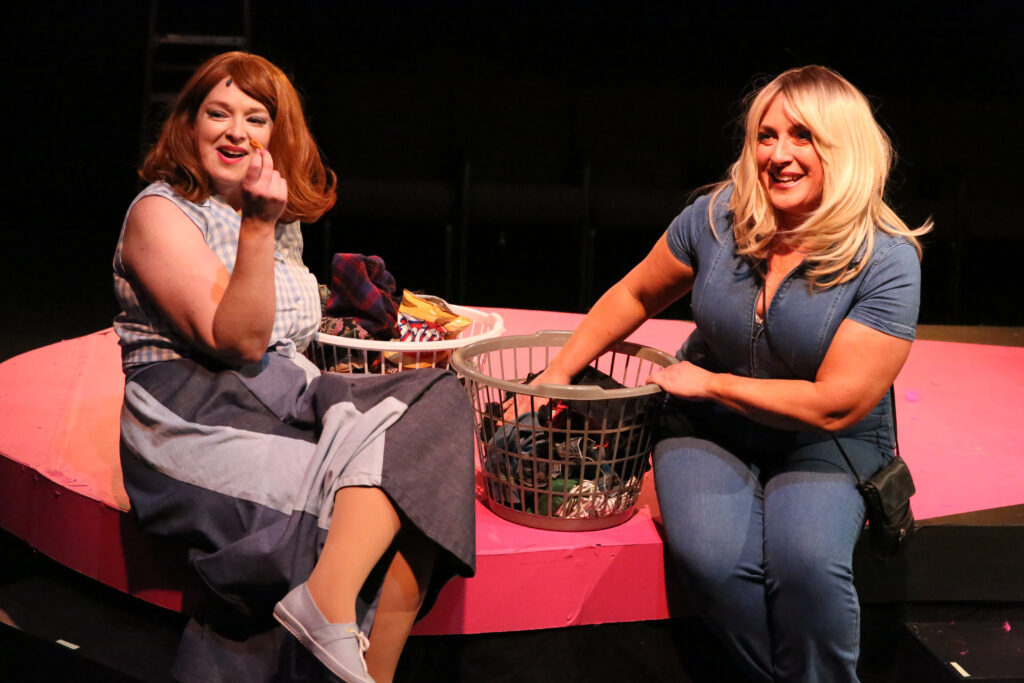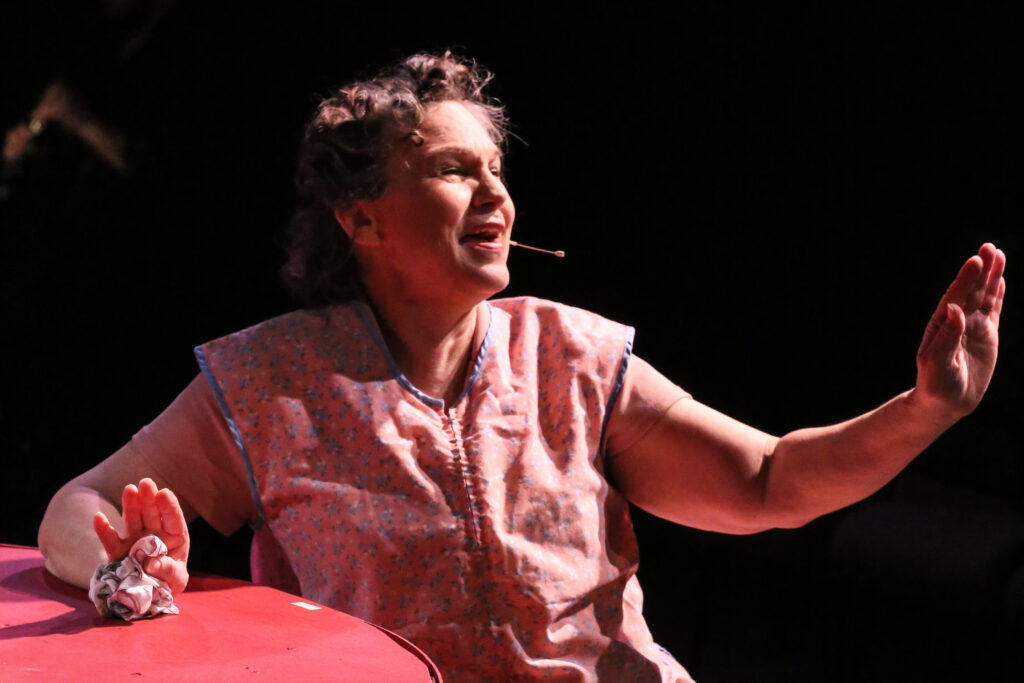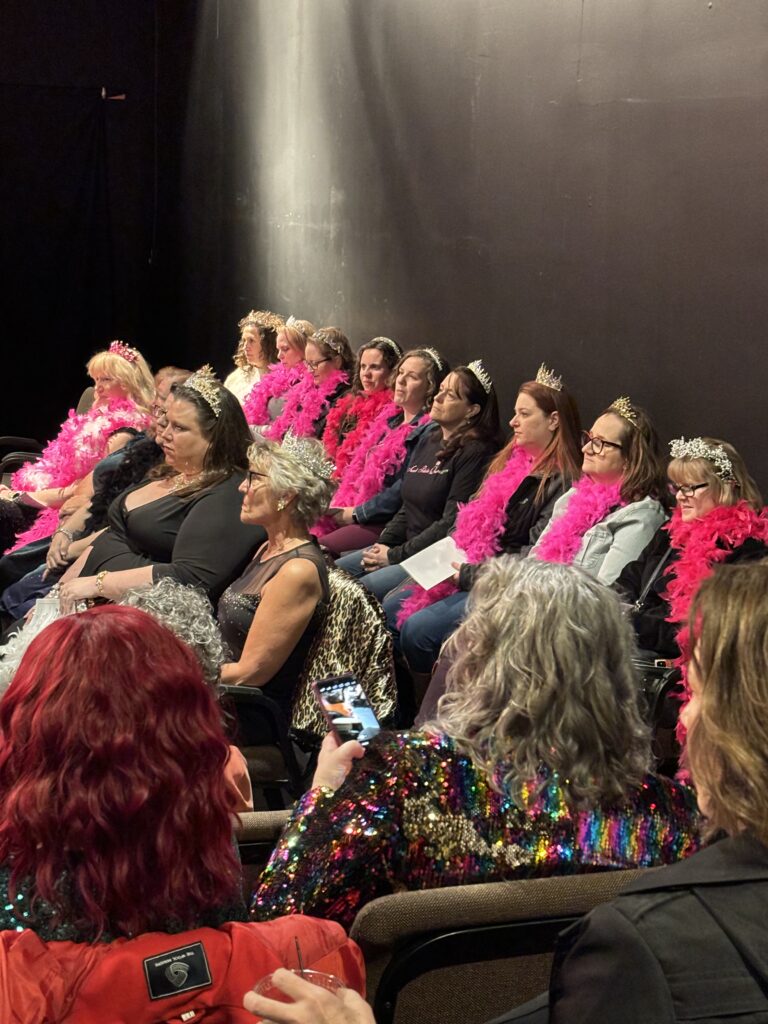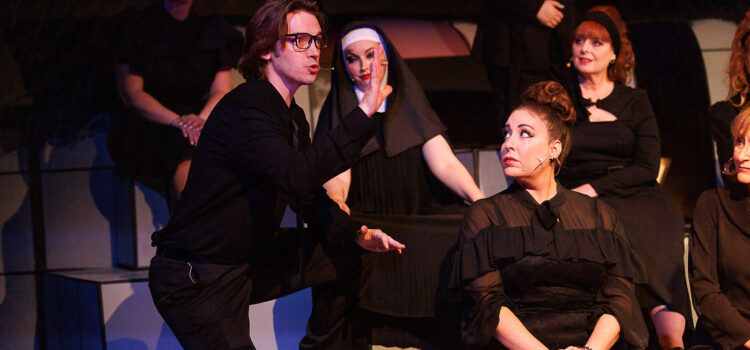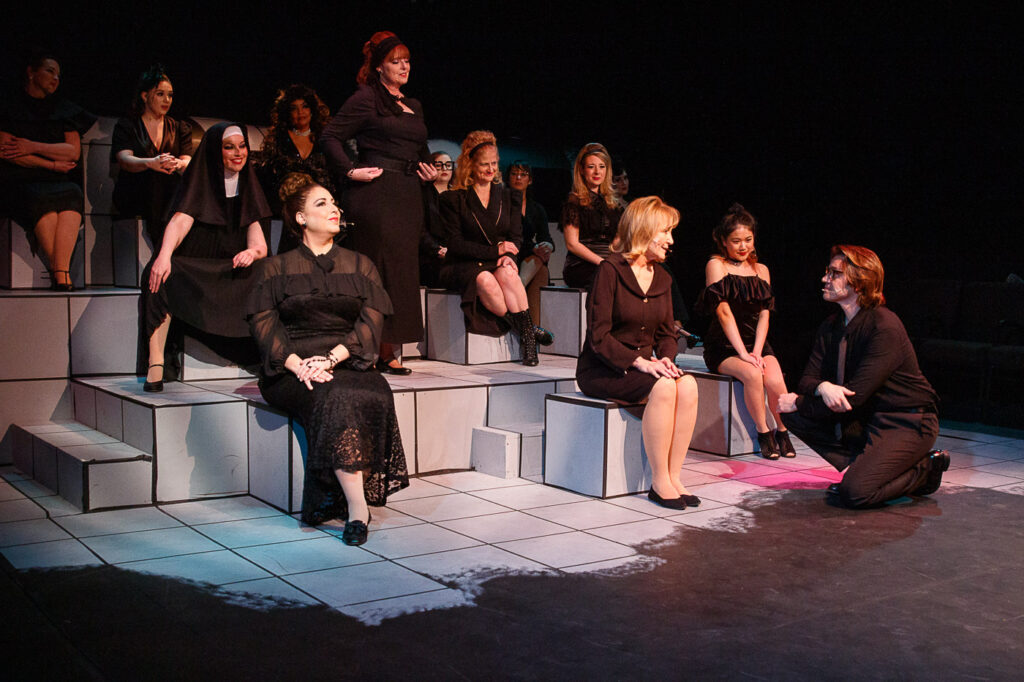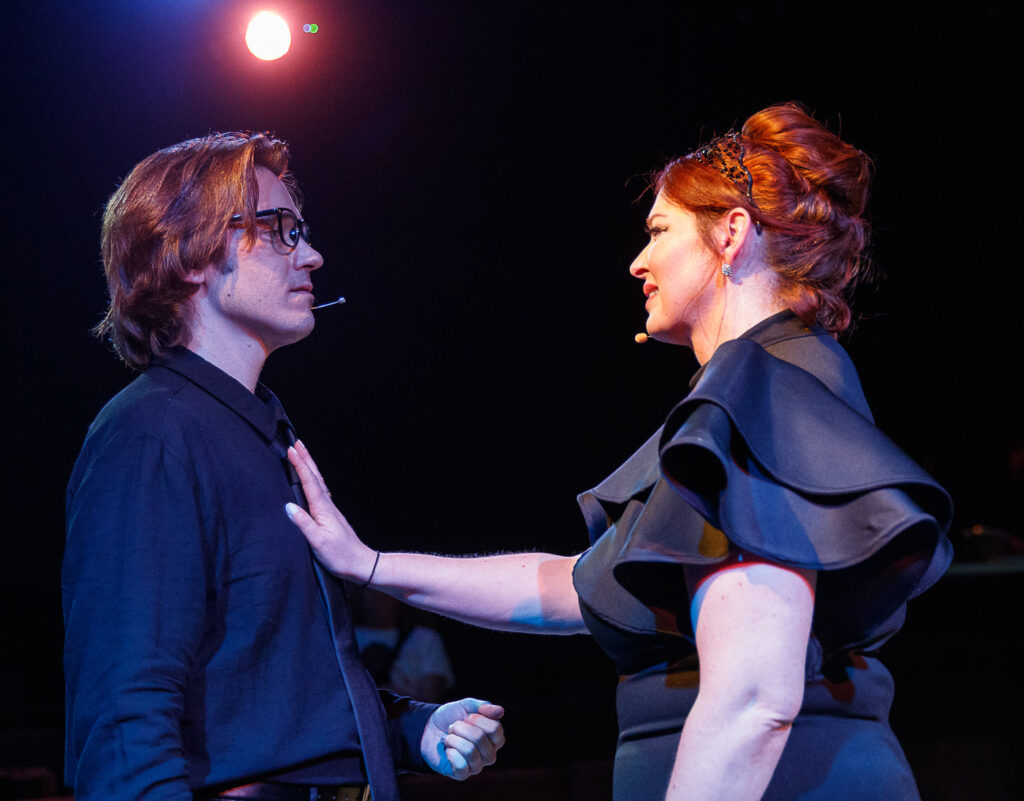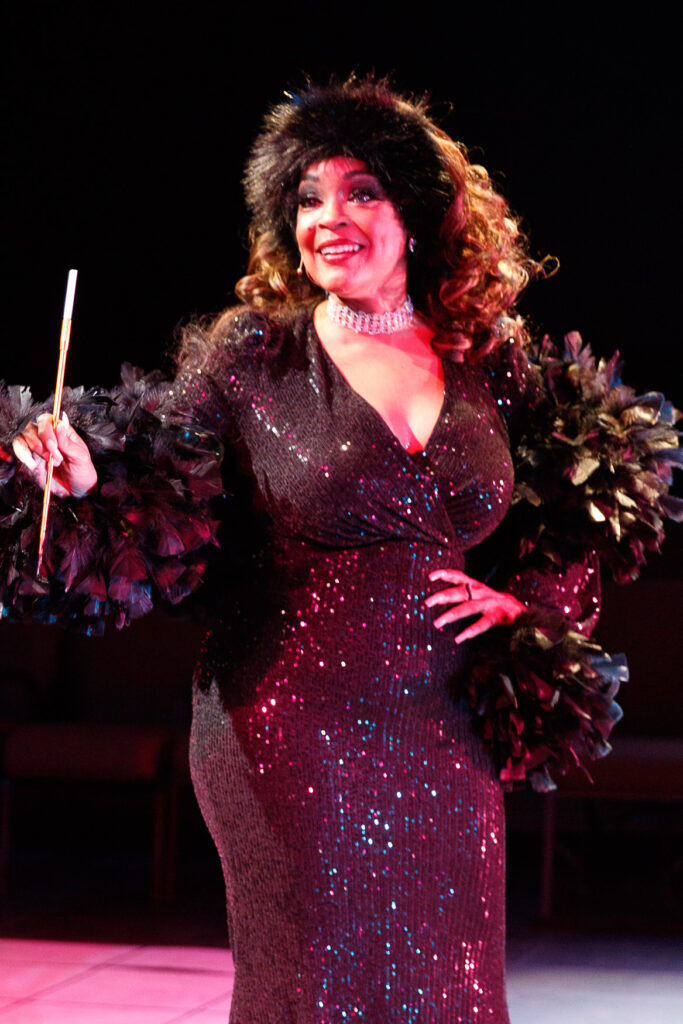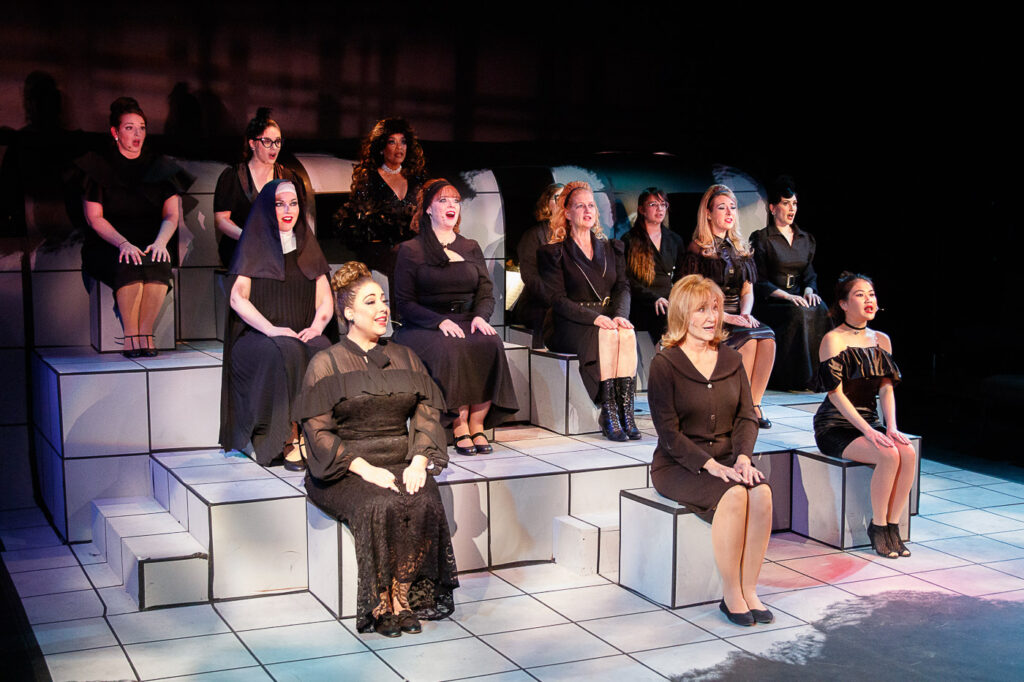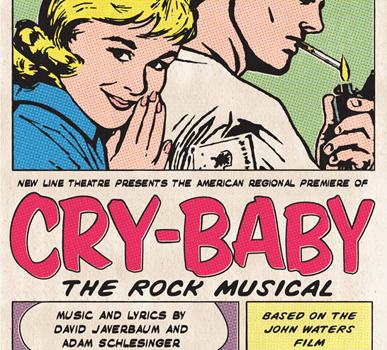New Line Theatre, “the bad boy of musical theatre,” has announced casting for its 29th season of adult, alternative musical theatre, which opens with the return of the wild, comic rock musical CRY-BABY, based on the iconic John Waters film, a show which New Line first produced in 2012 in its American regional premiere, running Sept. 26-Oct. 19, 2019. The season continues with the electrifying new rock musical fresh from Broadway, in its regional premiere, HEAD OVER HEELS, a high-energy, adult romp about gender and sexuality, based on a 16th-century novel and using the songs of the 80s rock band The Go-Go’s, running March 5-28, 2020. And the season closes with the return of one of New Line’s biggest hits, which the New Liners first presented in 2007, the pitch dark satire URINETOWN, the hilarious, outrageous fable of greed, corruption, love, revolution, and urination, running June 4-27, 2020.
Season tickets, including all three mainstage productions, start at just $60. Single tickets will go on sale in September. For more info, go to www.newlinetheatre.com/purchase/index.php
PLUS… New Line introduces the NEW LINE THEATRE FILM SERIES, curated by longtime New Liner Brian Claussen, screening a companion film at the Marcelle one Weds. night during the run of each mainstage show. This season’s films include John Waters’ original CRY-BABY during the run of Cry-Baby; ABSOLUTE BEGINNERS during the run of Head Over Heels; and MACK THE KNIFE, a film version of Threepenny Opera, during the run of Urinetown. These films are not part of the season subscription.
THE 2019-2020 SEASON
CRY-BABYSept. 26-Oct. 19, 2019
It’s 1954. Everyone likes Ike, nobody likes communism, and Wade “Cry-Baby” Walker is the coolest boy in Baltimore. He’s a bad boy with a good cause — truth, justice, and the pursuit of rock and roll.
Wayward youth, juvenile delinquents, sexual repression, cool music, dirty lyrics, social rejects, it’s all here, as New Line opens its 29th season in October 2019 with the hilarious rockabilly musical CRY-BABY, based on the classic John Waters film.
Cry-Baby premiered at the La Jolla Playhouse in San Diego in November 2007 and opened on Broadway in April 2008. New Line produced the show’s critically acclaimed American regional premiere in March 2012, after negotiating the first regional production rights in the country. The original creative team revised the show for New Line’s production and commissioned new orchestrations, to make it a smaller, more intimate musical, with a 6-piece rock band.
At the center of our story are the star-crossed lovers, Cry-Baby and the square rich girl Allison, just a good girl who yearns to be bad in Cry-Baby’s arms. Fueled by hormones and the new rhythms of rock and roll, she turns her back on her squeaky clean boyfriend Baldwin to become a “drape” (a Baltimore juvenile delinquent) and Cry-Baby’s moll. At the other end of the topsy-turvy moral meritocracy of 1954 America, Baldwin as the king of the squares leads his close-harmony pals against the juvenile delinquents, who are ultimately arrested for arson, sending the drapes all off to prison.
It’s Romeo and Juliet meets High School Hellcats.
Cry-Baby has a score by David Javerbaum (The Daily Show) and Adam Schlesinger (Fountains of Wayne), and a book by Mark O’Donnell and Thomas Meehan, based on John Waters’ classic indie film. O’Donnell and Meehan also adapted John Waters’ Hairspray for the musical stage.
Cry-Baby was nominated for four Tony Awards, including Best Musical, Best Book of a Musical, Best Original Score, and Best Choreography. It was also nominated for Best Musical by the Drama League and the Outer Critics Circle Awards. Terry Teachout wrote in the Wall Street Journal, “You want funny? I’ll give you funny, or at least tell you where to find it: Cry-Baby, the new John Waters musical, is campy, cynical, totally insincere and fabulously well crafted. And funny. Madly, outrageously funny. It is, in fact, the funniest new musical since Avenue Q. If laughter is the best medicine, then Cry-Baby is the whole damn drugstore.” Newsday called the show “pleasantly demented and — deep in the sweet darkness of its loopy heart — more true to the cheerful subversion of a John Waters movie than its sentimental big sister Hairspray.” The New Jersey Star-Ledger called it, “candy for adults who like their musicals nutty — and not so nice.”
The New Line cast includes Caleb Miofsky (as Wade “Cry Baby” Walker), Grace Langford (Allison Vernon-Williams), Margeau Steinau (Mrs. Vernon-Williams), Marshall Jennings (Dupree W. Dupree), Jake Blonstein (Baldwin Blandish), Reagan Deschaine (Pepper Walker), Jaclyn Amber (Wanda Woodward), Sarah Dowling (Mona “Hatchet-Face” Malnorowski), AJ Surrell (Lenora Frigid), Todd Micali, Stephen Henley, Ian McCreary, Christopher Strawhun, Maggie Nold, and Grace Minnis.
The New Line production will be directed by Scott Miller and Mike Dowdy-Windsor, with music direction by Nicolas Valdez, choreography by Michelle Sauer, scenic design by Rob Lippert, costume design by Colene Fornachon, lighting design by Kenneth Zinkl, and sound design by Ryan Day.
Cry-Baby contains adult language and content. Produced by arrangement with Music Theatre International, New York.
The New Line Film Series presents John Waters’ original musical film CRY-BABY on Weds., Oct. 9 at 7:00 p.m. at the Marcelle Theater, during the run of New Line’s Cry-Baby.
Gilbert & Sullivan’s Horror-ComedyBLOODY KING OEDIPUSA Free Public ReadingMonday, Jan. 6, 2020
King Oedipus is already having a bad day, and here comes some REALLY bad news…!
All Oedipus wants is to lift the curse that’s made his city sick, broke, and pissed off, but all these prophecies keep getting in the way. Could it be true that Oedipus killed the last king without realizing it? Is it possible he’s married to his own mother? Does his name really mean “swollen foot”? Maybe Tiresias the Blind Seer knows the answers. But does Oedipus really want to know…?
After shocking the music and theatre worlds by rediscovering Gilbert & Sullivan’s lost masterpiece The Zombies of Penzance in 2013, and then staging and publishing the controversial original opera in 2018; now New Line Theatre artistic director Scott Miller has done it once again. This time, Miller has unearthed Gilbert & Sullivan’s even darker and funnier BLOODY KING OEDIPUS (or Pardon Me, Mum!), a comic horror opera no one even knew existed until now, based on Sophocles’ iconic Greek tragedy of murder, incest, disfigurement, suicide, and lots of prophecies, which first premiered in 429 BC.
The legendary British team of librettist W.S. Gilbert and composer Arthur Sullivan together wrote fourteen comic operas between 1871 and 1896. Or is it sixteen? After rewriting their original Zombies of Penzance at the insistence of producer Richard D’Oyly Carte, the team premiered The Pirates of Penzance in 1879. Until now, scholars believed that their next project was the pastoral satire Patience. We now know that isn’t true. After the huge success of HMS Pinafore and Pirates, the team decided to tackle something a bit weightier. According to personal papers found with the manuscript, it was Gilbert who suggested two unlikely possibilities, Dante’s Inferno, and the classic Greek tragedy Oedipus the King, set in Thebes, a Greek city-state in the 13th century BC.
They both agreed Inferno would make a less than satisfying comic opera.
Gilbert stayed curiously faithful to the plot and characters of Sophocles’ ancient tragedy for his opera – until the end of the show, when Gilbert evidently couldn’t restrain himself from adding a comic, Gilbertian twist, upending everything that’s come before, as usual. It’s safe to say Sophocles would not have sanctioned Gilbert’s much more comic ending. The score includes songs like “We’ve Been Very, Very Sick,” “I Can See Now I Was Blind,” “Now This is Quite Awkward,” “So Our King Just Might Have Murdered Our Last King,” and “He Hasn’t Taken It Too Well.”
And now, at long last, King Oedipus, Queen Jocasta, General Creon, Tiresias the Blind Seer, Milo the Herald, and all of Thebes will make their comic opera debut. Miller has painstakingly reassembled these rediscovered materials into their original form; and St. Louis composer and orchestrator John Gerdes is reconstructing Sullivan’s music, after doing the same with The Zombies of Penzance.
New Line Theatre will present a reading of the rediscovered show Monday, Jan. 6, 2020, free and open to the public. The company has not yet announced a full production.
Dominic Dowdy-Windsor will play King Oedipus; with Kimi Short as Queen Jocasta; Kent Coffel as Gen. Creon; Lindsey Jones as Manto; and Zachary Allen Farmer as the Royal Messenger and Tiresias the Blind Seer and Milo the Herald and also Phorbus the Shepherd. The rest of the cast will be announced later. The reading will be directed by Scott Miller and music directed by Nicolas Valdez.
Bloody King Oedipus contains very adult language and content.
HEAD OVER HEELSMarch 5-28, 2020
The wild new modern musical fairy tale where Once Upon a Time is NOW!
HEAD OVER HEELS is the bold new musical comedy from the visionaries that rocked Broadway with Hedwig and the Angry Inch, Avenue Q and Spring Awakening. Conceived by Jeff Whitty, with an original book by Whitty, adapted by James Magruder, originally directed by Michael Mayer, and set to the music of the iconic 1980s all-girl rock band The Go-Go’s, this high-octane, laugh-out-loud love story includes hit songs like, “We Got the Beat,” “Our Lips Are Sealed,” “Vacation,” “Heaven is a Place on Earth” and “Mad About You.”
The wild story follows the escapades of a royal family who set out on a journey to save their beloved kingdom from extinction, only to discover the key to their realm’s survival lies within each of their own hearts — though not always in the way they expect — and in their willingness to let go of rigid tradition and change with the times.
Head Over Heels originally premiered at the Oregon Shakespeare Festival in 2015, then opened on Broadway in 2018. The show was nominated for Best Musical by the Drama League and the Outer Critics Circle Awards.
The Daily Beast said, “Head Over Heels is a raucously choreographed joy — intelligent, winningly comic, and surprisingly-for-Broadway radical when it comes to its presentation of gender and sexuality.” Entertainment Weekly said, “The show is an ode to female independence with the winking spirit of a Shakespearean fairy and the neon edge of a rebellious ‘80s teenager, teaming up to beckon people into the woods. Forty years after The Go-Go’s’ formation, Head Over Heels does more than preserve the band’s iconic hits in amber. For two hours and 15 minutes, it’s enough to pull the world back into sync.”
TimeOut NY said, “To enjoy Head Over Heels, which offers quite a lot to enjoy, it is probably best to kick up your heels and put your head on hold. That’s not to say that this saucy, boisterous musical doesn’t have a brainy side, starting with its ambitious crossbreeding of four time periods: It grafts a 2010s queer sensibility onto songs from the 1980s—by the all-girl pop-punk quintet the Go-Go’s (plus two hits from lead singer Belinda Carlisle’s solo career)—and fits them into a 16th-century story that is set in ancient Greece. . . Head Over Heels is a fantasy and celebration of nonconformity, and it puts its casting where its mouth is with an ensemble that is diverse in race, gender and size. Honoring the beat, in this merry Arcadia, means making room for different drummers.”
The New Line cast includes Grace Langford (Princess Pamela), Melissa Felps (Princess Philoclea), Gabriel Beckerle (Musidorus), Jaclyn Amber (Mopsa), Zachary Allen Farmer (King Basilius), Carrie Priesmeyer (Queen Gynecia), Aaron Allen (Dametas), Tiélere Cheatem (Pythio), Kevin Corpuz, Chris Moore, Maggie Nold, Michelle Sauer, Abraham T. Shaw, Alyssa Wolf, and Sara Rae Womack.
The New Line production will be directed by Scott Miller and Mike Dowdy-Windsor, with music direction by Nicolas Valdez, choreography by Michelle Sauer and Sara Rae Womack, scenic design by Rob Lippert, costume design by Sarah Porter, lighting design by Kenneth Zinkl, and sound design by Ryan Day.
Head Over Heels contains adult language and content. Produced by arrangement with Broadway Licensing, New York.
The New Line Film Series presents the movie musical ABSOLUTE BEGINNERS on Weds, March 18 at 7:00 p.m. at the Marcelle Theater, during the run of New Line’s Head Over Heels.
URINETOWNJune 4-27, 2020
It’s 2027, the toilets have all been privatized, and you have to pay to pee. Do you follow the rules or join the rebellion?
Mark Hollmann and Greg Kotis’ URINETOWN is the outrageous fable of greed, corruption, love, revolution, and urination, in a time when water is worth its weight in gold and there’s no such thing as a free pee. Set in a near-future dystopian Gotham, a severe 20-year drought has led to a government-enforced ban on private toilets. The citizens are forced to use public “amenities” now, regulated by a single malevolent company that profits by charging admission for one of humanity’s most basic needs. In this nightmare world, the punishment for an unauthorized pee is a trip to the dreaded Urinetown.
But from the ruins of Democracy and courtesy flushes, there rises an unlikely hero who decides he’s held it long enough, and he launches a People’s Revolution to lead them all to urinary freedom!
Inspired by the outrageous political theatre of Bertolt Brecht and Kurt Weill, and (very) loosely based on the writings of late eighteenth-century political and economic theorist Thomas Malthus, Urinetown is a gloriously silly, irreverently truthful satire from which no target is safe. This is a show that catapulted musicals into the new millennium with its rule-shattering tear through the traditions and conventions of musical theatre, leaving nothing but uncontrollable laughter and a big puddle in its wake.
And that’s just Act I.
When it opened in New York, the official slogan on the Urinetown T-shirts was “An appalling idea, fully realized.” Actor Daniel Marcus, who played Officer Barrel, said in an interview, “I call it a love letter to the American musical in the form of a grenade.”
Bruce Weber in The New York Times said, “There simply is no show I’ve seen that gives such a sense that the creators and performers are always on the same page of an elaborate, high-spirited joke, that they are the proud members of a cabal that knows what it takes to make the world a better place and that they are thrilled to share what they know.” He also called the show “a sensational piece of performance art, one that acknowledges theater tradition and pushes it forward as well.” The show was nominated for 9 Tony Awards (winning Best Book and Best Score), 9 Drama Desk Awards, 7 Obie Awards (winning Best Musical), 5 Outer Critics Circle Awards (winning Best Musical), and a Drama League Award for Best Musical.
New Line produced Urinetown in 2007. Kotis and Hollmann also wrote the rock musical Yeast Nation, which New Line produced in 2018.
The New Line cast includes Dominic Dowdy-Windsor (Lockstock), Jennelle Gilreath (Little Sally), Kevin Corpuz (Bobby Strong), Melissa Felps (Hope Cladwell), Kimi Short (Pennywise), Todd Schaefer (Mr. Cladwell), Marshall Jennings (Officer Barrel), Clayton Humburg, Sarah Porter, Zak Farmer, Ian McCreary, Brian Carles, Kellen Green, Jessica Winingham, Grace Langford, and Carrie Wenos Priesmeyer.
The New Line production of Urinetown will be directed by Scott Miller and Mike Dowdy-Windsor, with music direction by Nicolas Valdez, choreography by Michelle Sauer and Sara Rae Womack, costume design by Sarah Porter, scenic design by Todd Schaefer, and sound design by Ryan Day.
Produced by arrangement with Music Theatre International, New York.
The New Line Film Series presents MACK THE KNIFE, a film version of The Threepenny Opera, on Weds., June 17 at 7:00 p.m. at the Marcelle Theater, during the run of New Line’s Urinetown.
SEASON TICKETS
Season tickets are on sale NOW, and single tickets go on sale in September. New Line’s mainstage shows and the new film series will be in the company’s home, the Marcelle Theater, in the Grand Center Arts District.
There are three kinds of subscriptions. The First Look Subscription contains tickets for only the Thursday preview for each show. These tickets cannot be exchanged for other dates. Each Regular Subscription includes one ticket for each show in the season. You can use each ticket for any performance date during the run of that show. Each Flex Subscription includes three Flex tickets that you can use at any time for any show during the entire season — use all three tickets for one show or spread them out over the season, however you want! The deadline for ordering season tickets is Sept. 2, 2019.
To order season tickets for the three mainstage shows, Cry-Baby, Head Over Heels, and Urinetown, go to http://www.newlinetheatre.com/purchase/index.php.
BUT WAIT, THERE’S MORE… Save the dates for The Second Annual New Line Trivia Night, on Friday, Sept. 13, at the Richmond Heights Community Center; and The 19th Annual New Line Holiday Dinner, on Weds. Dec. 4, at Favazza’s Restaurant on The Hill. Reservations for the dinner are required.
THE 2019-2020 NEW LINE SEASON AT A GLANCE
Sept. 13, 2019 – Second Annual New Line Trivia Night
Sept. 26-Oct. 19, 2019 – Cry-Baby *
Oct. 9, 2019 – Film Series: Cry-Baby
Dec. 4, 2019 – 19th Annual New Line Holiday Dinner
Jan. 6, 2020 – Free Public Reading of Bloody King Oedipus
Mar. 5-28, 2020 – Head Over Heels *
Mar. 18, 2020 – Film Series: Absolute Beginners
June 4-27, 2020 Urinetown *
June 15, 2020 – Auditions for 30th Season
June 17, 2020 – Film Series: Mack the Knife
June 22, 2020 – Auditions for 30th Season
* These three shows are included in the season ticket package.
ABOUT NEW LINE THEATRENew Line Theatre is a professional company dedicated to involving the people of the St. Louis region in the exploration and creation of daring, provocative, socially and politically relevant works of musical theatre. New Line was created back in 1991 at the vanguard of a new wave of nonprofit musical theatre just starting to take hold across the country. New Line has given birth to several world premiere musicals over the years and has brought back to life several shows that were not well served by their original New York productions. Altogether, New Line has produced 88 musicals since 1991, and the company has been given its own entry in the Cambridge Guide to American Theatre and the annual Theater World. New Line receives support from the Regional Arts Commission, the Missouri Arts Council, a state agency, the Kranzberg Arts Foundation, and the Grand Center Arts District.
New Line also continues its partnership with the Webster University Department of Music and their Bachelor of Music in Music Direction for Musical Theatre degree program.
For more information, visit www.newlinetheatre.com.
Lynn (Zipfel) Venhaus has had a continuous byline in St. Louis metro region publications since 1978. She writes features and news for Belleville News-Democrat and contributes to St. Louis magazine and other publications.
She is a Rotten Tomatoes-approved film critic, currently reviews films for Webster-Kirkwood Times and KTRS Radio, covers entertainment for PopLifeSTL.com and co-hosts podcast PopLifeSTL.com…Presents.
She is a member of Critics Choice Association, where she serves on the women’s and marketing committees; Alliance of Women Film Journalists; and on the board of the St. Louis Film Critics Association. She is a founding and board member of the St. Louis Theater Circle.
She is retired from teaching journalism/media as an adjunct college instructor.

